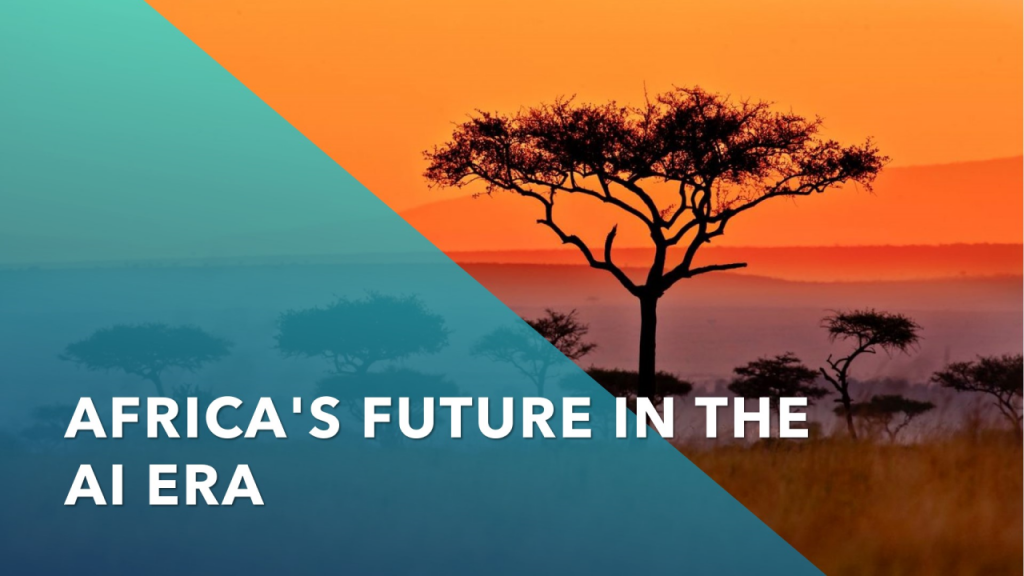
Gone are the days when Africa took the backseat in technological advancement. Over the last couple of years, a significant development has been the introduction of artificial intelligence (AI) into everyday life. With AI rapidly spreading across the globe, Africa has not been left behind. In fact, several African businesses are embracing this technology, integrating it across various industries to enhance efficiency and improve service delivery. According to a research by Statista, with a market size change of 36.11% in 2024 from 2023, the market size of Africa is expected to show an annual growth rate (CAGR 2024-2030) of 28.34%, resulting in a market volume of US$16.53bn by 2030. This points to a continent embracing the advancement of technology.
AI Growth in Africa
AI’s presence in Africa is unmistakable, particularly in industries like agriculture, healthcare, and finance. In agriculture, AI is revolutionizing farming practices by providing predictive analytics for weather patterns, crop diseases, and optimal planting seasons. According to a GSMA report, today, Agriculture is responsible for 49% of African AI use cases. For example, companies like Aerobotics in South Africa use drones and AI to help farmers monitor crops, assess yields, and detect diseases early.
In healthcare, AI-powered platforms are aiding diagnosis and treatment in underserved areas. 54gene, a Nigerian biotech startup, is using AI for genetic research and to improve precision medicine across the continent. This technology is transforming healthcare by bridging the gap in access to quality care.
Finance, however, stands out as the industry experiencing the fastest AI growth. In Nigeria, Carbon (formerly Paylater) is a prime example of AI-driven innovation. The fintech startup uses AI to analyze customer data, offering instant loans and personalized financial services. This is part of a broader trend where AI is driving financial inclusion across Africa, offering services to those previously excluded from formal banking systems.
Countries like Nigeria, Rwanda, and South Africa are seeing a surge in AI startups, making it clear that the potential for AI in Africa is immense. These nations are positioning themselves as tech hubs, with governments also investing in innovation and infrastructure to foster this growth.
The Role of Market Research in AI Implementation
Now you may ask, what role does market research play in AI implementation? As AI continues to grow, knowing the market becomes crucial to its successful implementation. Market research in Africa plays a key role in helping businesses understand local needs, preferences, and challenges, ensuring that AI solutions are relevant and tailored to the continent’s unique demands.
Look at companies like Jumia in e-commerce, which are using AI to personalize shopping experiences for African consumers, ensuring products are suited to their exact needs. This is driven by deep insights into market behavior, gathered through data analytics and consumer research.
Moreover, market research helps to uncover gaps in data collection, which is vital for AI to function effectively. Companies like Webhaptic, a Nigerian data and intelligence company, are leveraging market insights to improve AI solutions for businesses. This ensures that AI products not only solve African problems but also align with the cultural, social, and economic contexts of the continent.
Challenges Facing AI in Africa and Opportunities
As we have established, the potential for AI in Africa is immense, but there are significant challenges to overcome. Limited infrastructure, unreliable electricity, and a shortage of skilled AI professionals are some of the obstacles.
However, these challenges also present opportunities. For example, companies like Andela are addressing the skills gap by training a new generation of African AI developers who can drive the industry forward.
Some other ways to tackle these issues include:
-
- Localization: Placing a strong emphasis on creating localized AI solutions to accommodate diversity in language, ensuring the technology resonates with the abundance of languages in Africa.
- Hybrid Methods: Combining AI-powered data collection with traditional research methods to ensure inclusivity and maintain data quality.
- Investment and Capacity Building: Investing in the development of local experts and talent in AI and data science to foster a self-sufficient ecosystem.
- Collaboration: Collaborating with AI providers to co-create solutions tailored to the unique needs of the African market, fostering a collaborative approach to technological integration.
Speaking on collaboration, the African Union recently adopted the African Union AI Continental Strategy, an important tool in shaping Africa’s approach to AI innovation. This strategy is a testament to the core values listed by the AU regarding its development aspirations.
Despite these challenges, the opportunities for growth remain incredibly positive. As AI becomes more integrated into everyday life, businesses that invest in AI-driven solutions stand to gain a competitive edge. For instance, AI-powered solutions like Lori Systems in the logistics sector are optimizing delivery routes and reducing transportation costs, helping African businesses scale more effectively.
Africa is on the edge of an AI revolution, with industries from agriculture to finance already reaping the benefits of this technology. However, the key to unlocking AI’s full potential lies in market research, which involves understanding the African consumer and tailoring AI solutions to meet their needs. With the right investments in infrastructure, talent, and research, the future of AI in Africa is bright, ready to drive economic growth and innovation across the continent.
